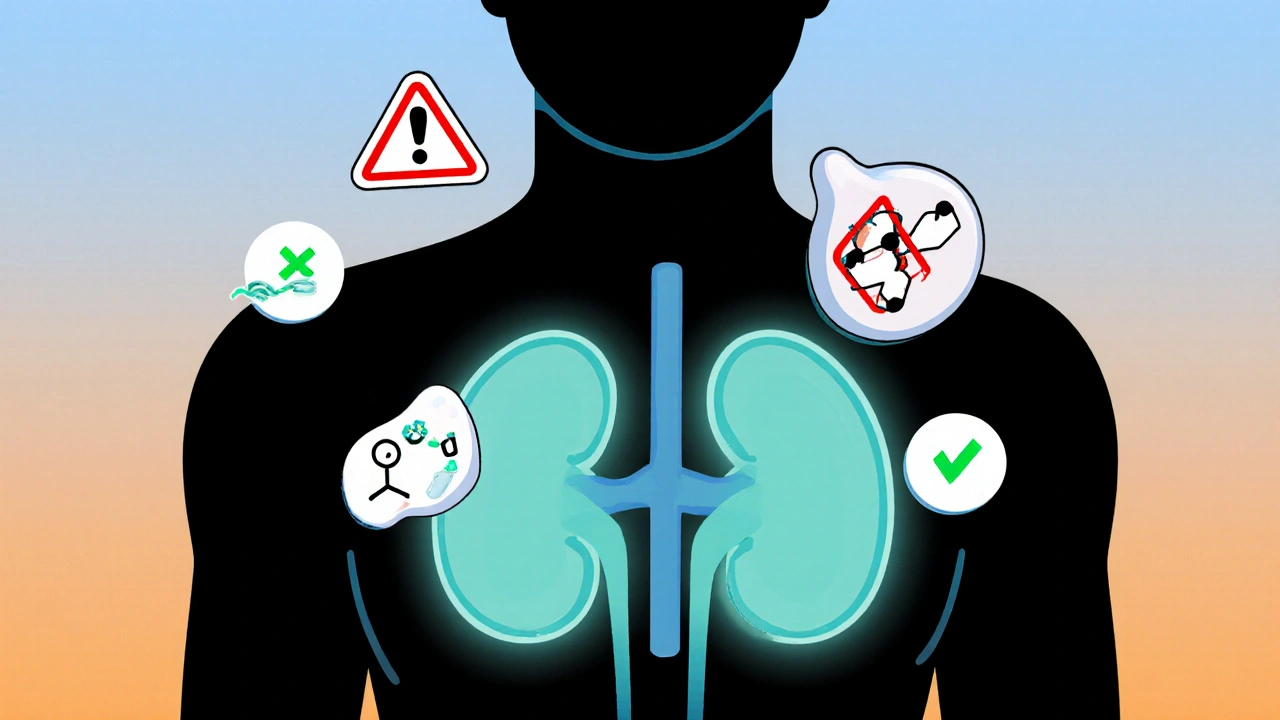Learn which opioids are safe for kidney failure, how to adjust doses by GFR, and practical tips for monitoring side effects.
CKD Pain Management: Effective Strategies and Safe Medications
When you have chronic kidney disease, a long-term condition where the kidneys slowly lose function, often leading to pain from nerve damage, bone issues, or muscle cramps. Also known as CKD, it changes how your body handles drugs—making common pain relievers risky if not used carefully. Many people with CKD suffer from ongoing pain, but not all pain meds are safe. What works for someone with healthy kidneys can hurt someone with reduced kidney function.
Analgesics, medications used to relieve pain, including NSAIDs, acetaminophen, and opioids. Also known as pain relievers, they need special handling in CKD. NSAIDs like ibuprofen or naproxen can worsen kidney function and raise blood pressure, so they’re usually avoided. Acetaminophen is often the first choice for mild to moderate pain because it’s less harsh on the kidneys—but even this has limits. High doses or long-term use can still cause liver damage, especially if you’re also taking other meds. Opioids like tramadol or codeine may be used for severe pain, but they build up in the body if kidneys can’t clear them, leading to drowsiness, confusion, or breathing issues.
Nephrology, the branch of medicine focused on kidney health and disease management. Also known as kidney care, it guides how pain is treated in CKD patients. A nephrologist doesn’t just look at your lab numbers—they consider your whole picture: what other conditions you have, what meds you’re on, and how your pain affects your daily life. They might suggest non-drug options like physical therapy, heat therapy, or nerve-targeted treatments. Some patients benefit from low-dose antidepressants or anticonvulsants, which help with nerve pain even if they’re not used for depression or seizures.
What you won’t find in most guides is how often patients are left guessing. Over-the-counter painkillers are easy to grab, but they’re not always safe for CKD. You need clear rules, not just warnings. That’s why the posts here focus on real-world choices: what actually works, what to skip, and how to talk to your doctor about alternatives. You’ll see comparisons between drugs like diacerein and NSAIDs, guidance on vitamin D analogs that help with bone pain, and how to use medications like gabapentin or pregabalin safely when your kidneys aren’t functioning normally. No fluff. No guesses. Just what matters when your kidneys are already under stress.

